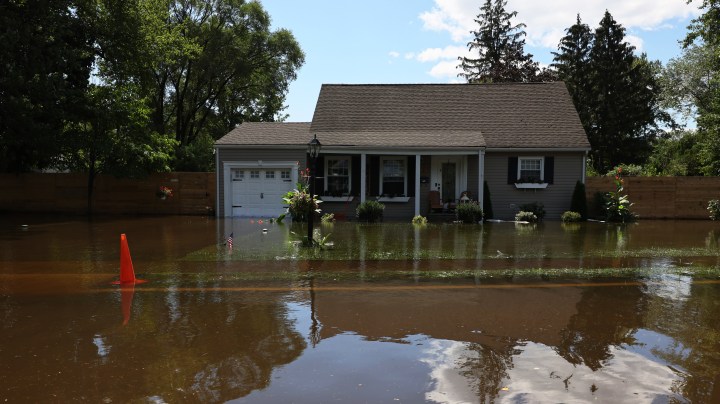
Are insurers accurately pricing in climate change risk?

Major insurance companies are pulling out of markets like California and Florida because of the increasingly frequent, destructive and costly natural disasters that come with climate change. As big insurers leave town, that means residents’ remaining insurance options get more expensive.
Marketplace’s David Brancaccio spoke with our senior economics contributor, Chris Farrell, about how insurance companies price in climate change risk. The following is an edited transcript of their conversation.
David Brancaccio: First of all, it’s typically the largest asset on the balance sheet of any household — the primary residence. And often the mortgage company makes you have insurance on what they’re helping to pay for. How big is the homeowners insurance market?
Chris Farrell: Homeowners insurance is a $15 trillion market by coverage, and almost 85% of homeowners, they pay premiums. And these policies, they provide households with financial protection from climate-related losses. You know, think of it this way: The insurance industry is acting like the frontline defense against climate change in how it prices risk and pools coverage.
Brancaccio: Homeowners insurance premiums are tending to go higher, especially in parts of the country that are more vulnerable to natural disasters.
Farrell: Yeah. From the perspective of homeowners, a number of insurance companies have decided not to write new property insurance policies in California, including State Farm, and you have a somewhat similar story that’s unfolding in Florida. Premiums are up sharply in Texas. Homeowners in some vulnerable states, you know, they turn to state-chartered or state-backed insurance for coverage. But boy, these backstops, David, you know, they’re financially vulnerable too.
Brancaccio: Insurance is regulated at the state level. That’s one of its features or bugs. How are regulators and legislators responding?
Farrell: In the aggregate, not fast enough. You know, there’s a fascinating study by three economists, it was published last year by the Federal Reserve, and they found strong evidence that state regulators have largely decoupled rates from the underlying risks. So in states that are at risk to hurricanes, wildfires, rates haven’t been adequately adjusted to the growth in losses. And it’s understandable, you want to protect homeowners from these higher premiums, but allowing insurance companies to price the risk of climate-related change into their policies, it is absolutely critical to mitigating the impact of climate change.
Brancaccio: Right. But higher prices mean fewer families, fewer homeowners, would be able to afford homeowners insurance. There’s that paradox.
Farrell: There is, and that’s why there’s going to be a lot of reform in this market. But any reform movement, it kind of needs that foundation of accurate risk-adjusted premium prices. You know, with better risk pricing, it creates incentives for individuals, regulators, legislators to take climate change seriously. The bottom line is when rates don’t adequately reflect risks, the informational role of insurance prices breaks down, and we’re less prepared to protect the economy from the impact of climate change.
There’s a lot happening in the world. Through it all, Marketplace is here for you.
You rely on Marketplace to break down the world’s events and tell you how it affects you in a fact-based, approachable way. We rely on your financial support to keep making that possible.
Your donation today powers the independent journalism that you rely on. For just $5/month, you can help sustain Marketplace so we can keep reporting on the things that matter to you.











